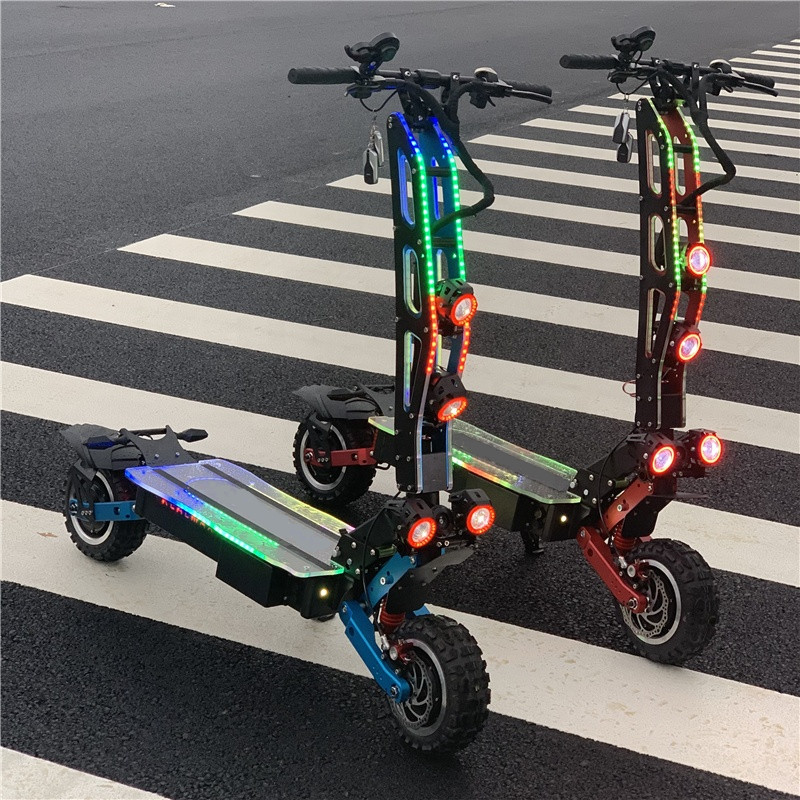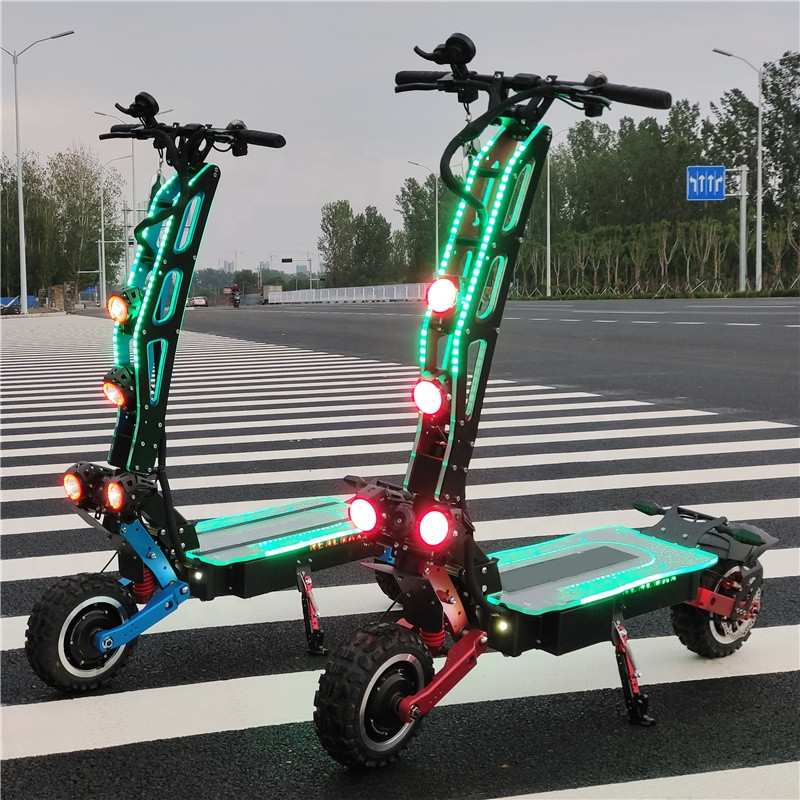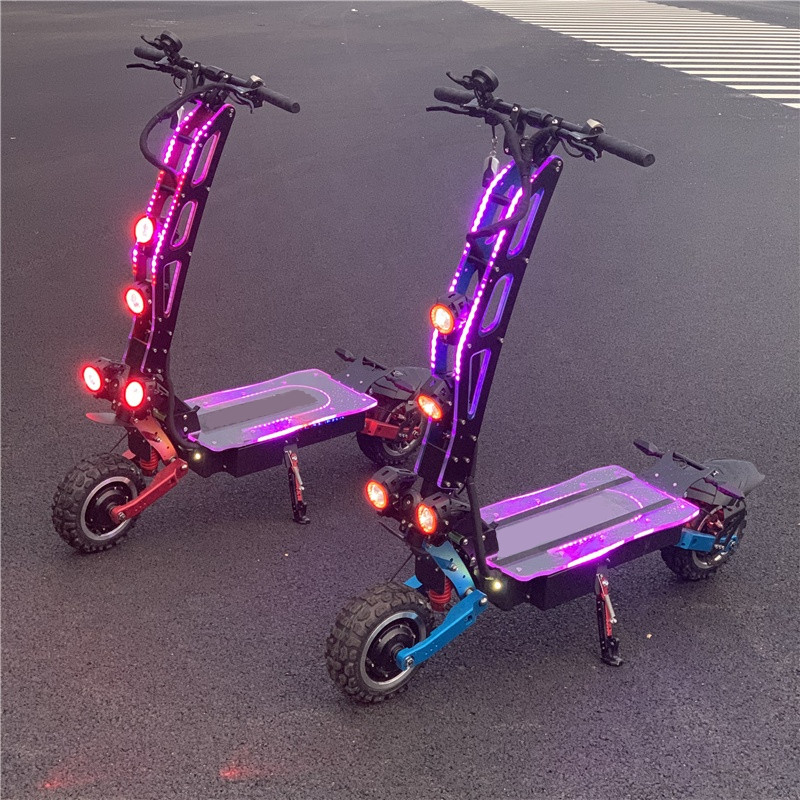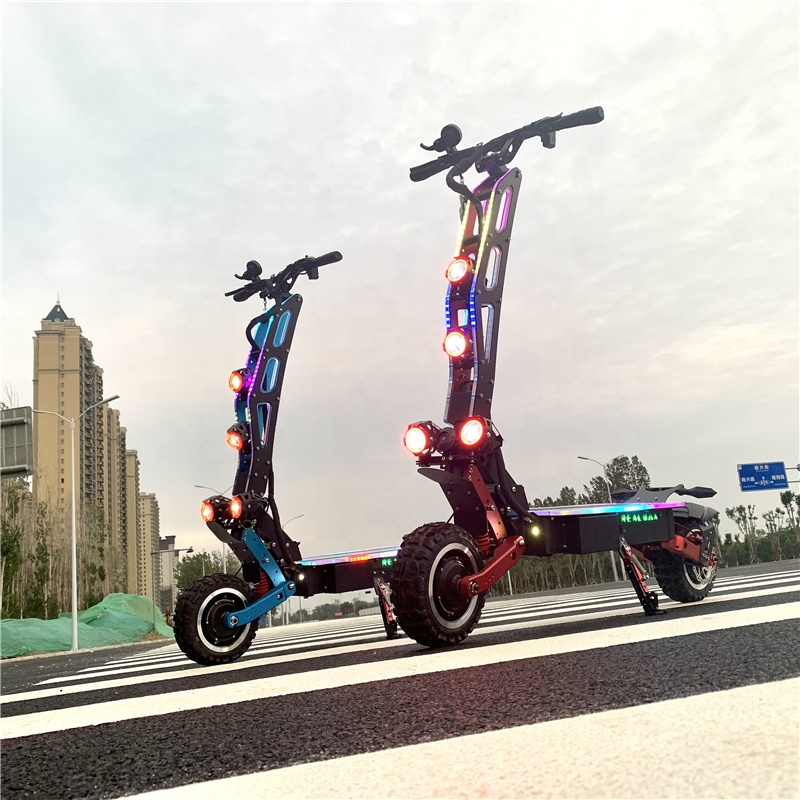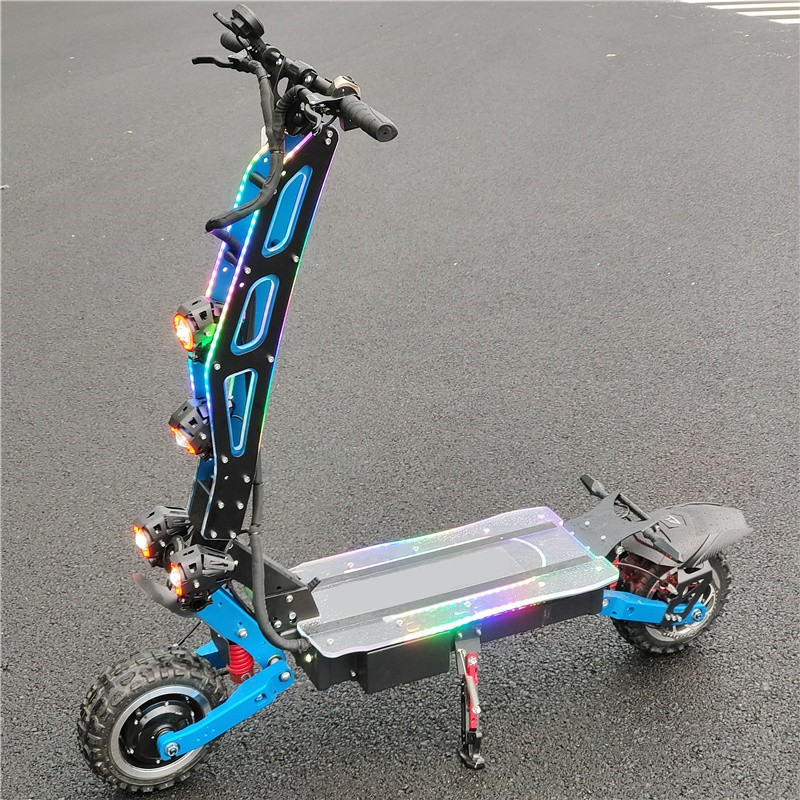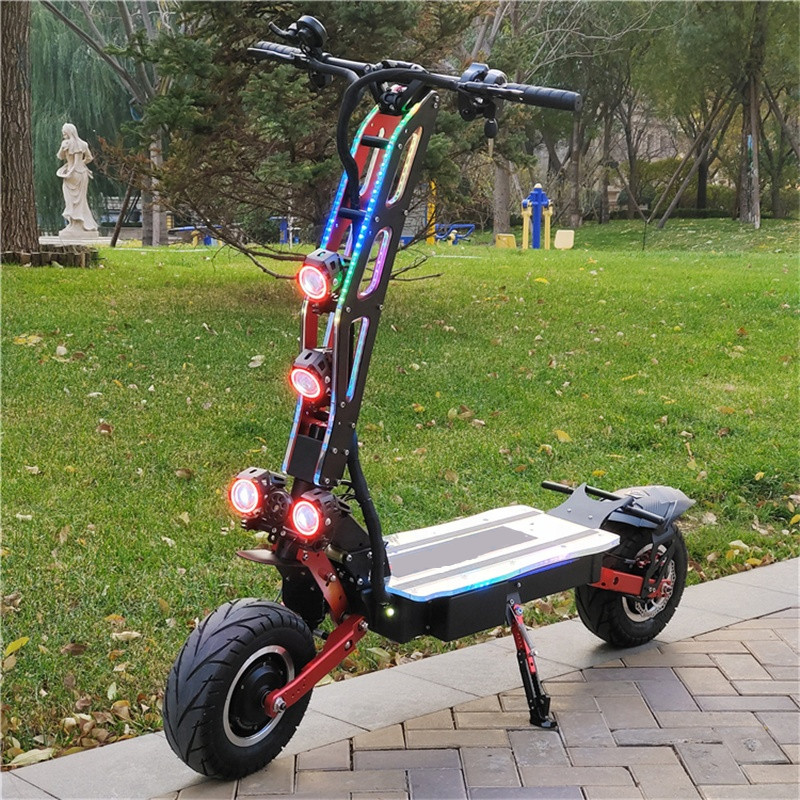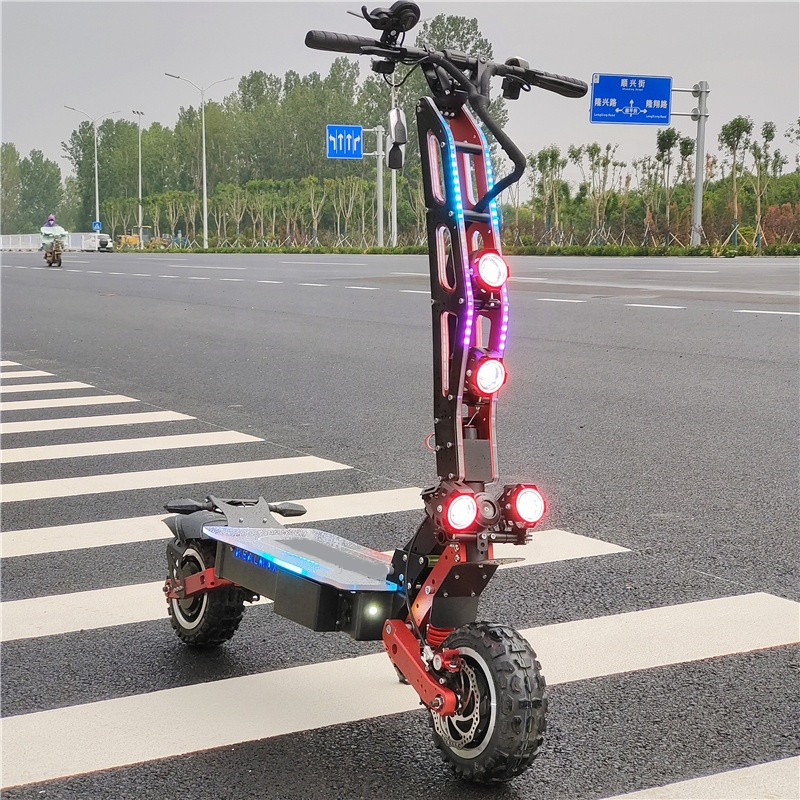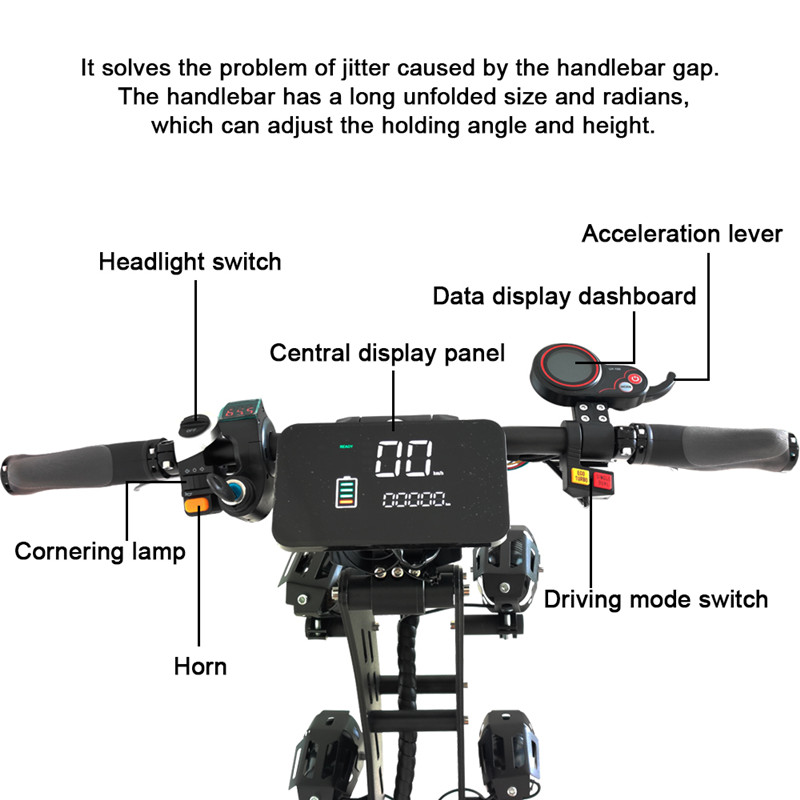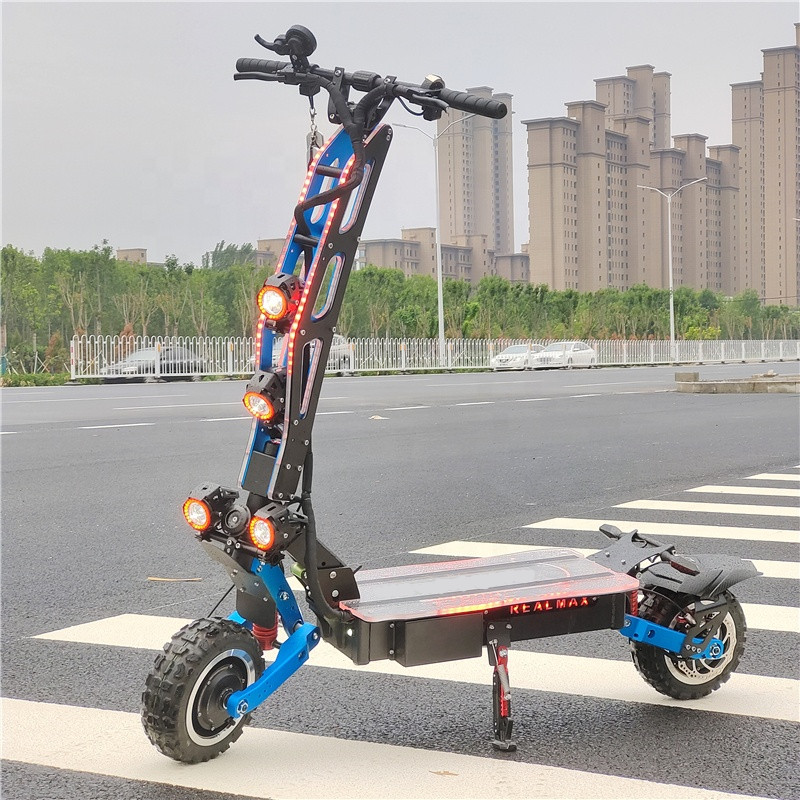Description
Monopatin
Voiture Electrique Adulte
Electric Bike 15000w
| Parameter | |
| Frame | High strength aluminum alloy 6061, surface paint |
| Forking forks | One forming front fork and rear fork |
| Electric machinery | 11 “72V 10000W brushless toothed high speed motor |
| Controller | 72V 70SAH*2 tube vector sinusoidal brushless controller (mini type) |
| Battery | 72V 40AH-45AH module lithium battery (Tian energy 21700) |
| Meter | LCD speed, temperature, power display and fault display |
| GPS | Location and telecontrol alarm |
| Braking system | After one disc, does not contain harmful substance, in compliance with international environmental requirements |
| Brake handle | Forging brake of aluminum alloy with power breaking function |
| Tyre | ZhengXin tire 11 inch |
| Headlight | LED lenticular bright headlights and driving lights |
| Maximum speed | 110km |
| Extension mileage | 115-120km |
| Motor | 5000watt per piece |
| Wheel | 11inch |
| Net weight and gross weight | 54kg/63kg |
| Product size | L* w* h: 1300*560*1030 (mm) |
| Packaging size | L* w* h: 1330*320*780 (mm) |
High Speed Electric Scooter: The Future of Urban Transportation
In recent years, the High Speed Electric Scooter (HES) has been gaining popularity as a convenient and eco-friendly transportation option in cities around the world. With its ability to easily navigate through traffic and its low carbon footprint, the HES has become an attractive alternative to traditional modes of transportation such as cars and public transportation. In this article, we will explore the benefits of HES and why it is becoming the preferred choice for many urban commuters.
First and foremost, the HES is an environmentally friendly mode of transportation. Traditional gasoline-powered scooters and motorcycles emit harmful gases that contribute to air pollution, which is a significant problem in many cities. The HES, on the other hand, is powered by electricity, which is a clean energy source that does not produce any emissions. This makes the HES an attractive option for those who want to reduce their environmental impact and contribute to a more sustainable future.
Another advantage of the HES is its convenience. With its small size and maneuverability, the HES can easily navigate through traffic congestion and tight city streets. This allows riders to avoid the delays and frustration that come with driving a car or using public transportation. Additionally, HESs do not require a driver’s license or insurance, making them an accessible option for people of all ages and backgrounds.
The HES also provides a more affordable transportation option compared to other modes of transportation. The cost of operating a HES is significantly lower than operating a car or motorcycle, as electricity is generally cheaper than gasoline. Additionally, HESs are relatively inexpensive to purchase, with many models costing under $1,000. This makes the HES a practical and cost-effective option for those who need a reliable way to get around the city.
Another factor contributing to the popularity of the HES is the rise of ride-sharing platforms. Companies such as Lime and Bird have made it easy for people to rent HESs on-demand through their mobile apps. This has made the HES more accessible to a wider audience and has helped to popularize the concept of shared, electric scooters as a viable transportation option.
Furthermore, the HES is an ideal solution for the “last-mile” problem that many urban commuters face. The last-mile problem refers to the challenge of getting from a public transportation stop to one’s final destination, often involving a significant amount of walking or taking a taxi or ride share. With a HES, riders can easily navigate the final leg of their journey, reducing the need for additional transportation options.
Despite the numerous advantages of the HES, there are also some challenges that need to be addressed. One of the main concerns is safety. With the increasing popularity of HESs, there has been a corresponding increase in accidents involving these vehicles. This has led to calls for stricter regulations and safety standards to ensure the safety of riders and other road users.

